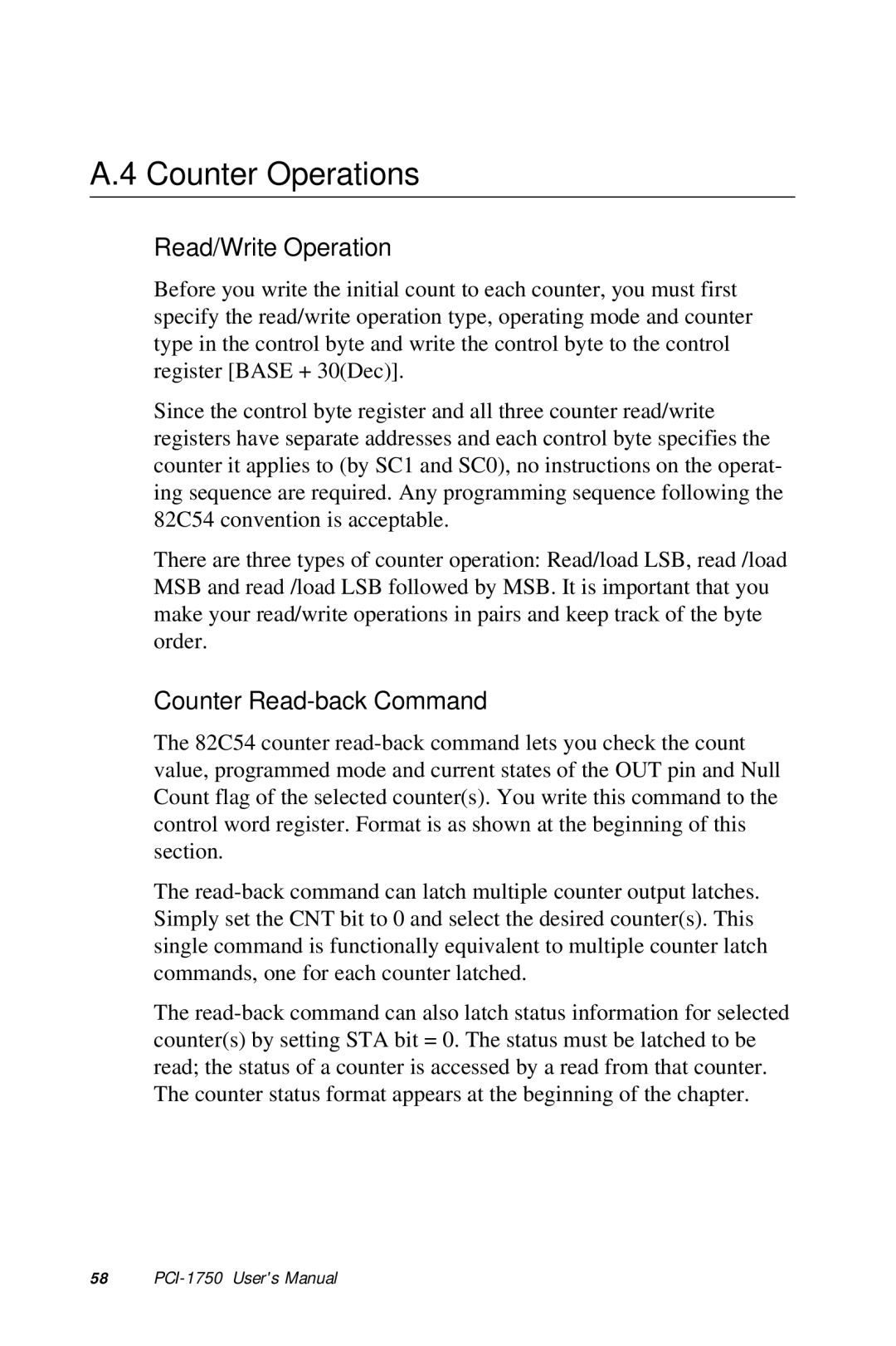PCI-1710 specifications
The Advantech PCI-1710 is a highly regarded data acquisition card designed for a wide array of industrial automation and control applications. Offering a robust combination of features and technologies, it is particularly valued for its versatility and high-performance capabilities in collecting and processing analog and digital signals.At the heart of the PCI-1710 is its 16-bit resolution, which allows for precise measurement of analog signals. This feature is essential in applications that require accurate data capture, such as process monitoring, testing, and quality control in manufacturing environments. The card provides eight single-ended analog input channels, enabling users to connect multiple sensors and transducers simultaneously for comprehensive data gathering.
One of the standout characteristics of the PCI-1710 is its flexible input range, supporting both unipolar and bipolar configurations. This adaptability makes it suitable for a myriad of applications across different industries, including automotive, aerospace, and electronics. The card can also handle a sampling rate of up to 200 kS/s, allowing for rapid data acquisition critical in dynamic environments where timing is crucial.
In addition to its analog capabilities, the PCI-1710 boasts 8 digital input and 8 digital output channels. The digital I/O functions enable the card to serve as an interface for various control and monitoring tasks, further enhancing its utility in automation systems. This integration of analog and digital features within a single card streamlines system design, reducing the need for multiple components and improving reliability.
The PCI-1710 utilizes Advantech’s powerful DAQ software and drivers, ensuring seamless integration with a variety of operating systems and development environments. The comprehensive software support allows engineers to quickly set up data acquisition tasks and execute complex control algorithms without extensive programming, making it accessible for users with varying levels of technical expertise.
In summary, the Advantech PCI-1710 is a versatile data acquisition solution that combines high resolution, flexible input options, and robust digital I/O capabilities. Its capabilities make it ideal for a wide range of applications in industrial automation, monitoring, and testing. With its combination of performance, flexibility, and user-friendly software support, the PCI-1710 remains a popular choice for engineers and developers seeking reliable data acquisition solutions.
